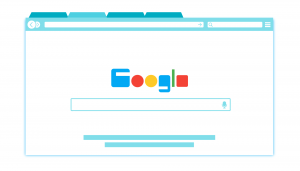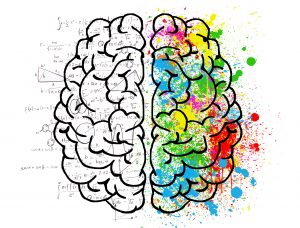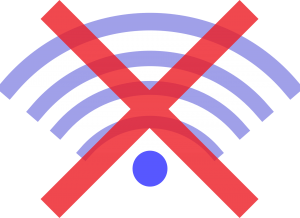Productive or Distracted – Week 6
When thinking about the internet, I often think I like what it has to offer, but the one thing that always gets me is how easily distracted or off task I tend to get! This results in longer than expected timeframe to complete tasks (if they get completed at all). A lot of the time I just have a multitude of tasks started, but unfinished tasks litter my Google Chrome browser. With that said, I have often thought to myself when looking at my laptop screen…. “Why do I have sooo many tabs open? What are some of these tabs even for? What the heck was I doing with these tabs?”

I have a terrible habit of leaving my computer with multiple tabs open and when I return to work on my computer, I cannot for the life of me remember why these tabs were open! A lot of the time, I find myself not knowing where to start when I have so many tabs open on my computer and I usually end up doing something completely unrelated to any one tab that is currently open. I sometimes feel this represents what is actually happening in my brain… scattered thoughts and to do lists!
I have started utilizing the function on Google Chrome where you can group your tabs under one umbrella tab, to make it look like there is only one tab there, until you decide to click and see there are 18 more tabs sitting there waiting for you to remember why they are open in the first place!
I recently completed some more unit planning documents, otherwise there would be another 5-6 tabs under the Unit Planning tab. I really should be creating a paper list of the tasks that I need to complete on my computer and knock things off of that rather than having 14 tabs open. Perhaps James Hamblin is onto something with the Single-Tasking movement!!
Brain Configuration

I wanted to do some more digging into what actually happens to our brains when we use technology and came across the article How the Internet Destroys Your Focus (and How to Get It Back) which was written by Thomas Frank. He first outlines that over the last few decades, brain scientists have learned a lot about our neuroplasticity – which is essentially changes in our brain’s physical configuration in response to the stimulus that you expose it to and the response that is generated. Frank goes on to outline that this can be accomplished by completing simple tasks like reading a clock to more complex tasks like playing video games or using the internet. According to the article, there have been numerous studies to confirm and understand this development in our brains. These experiments were done using authors, violinists and even cab drivers. The broadness of these experiments really emphasizes that no matter the task, from writing to playing a musical instrument to navigating, your brain will always adapt and change to the stimulus that it is exposed to.
Frank also outlines that human beings are wired with bottom-up attention/thinking which basically means that we are able to pick up through our senses, changes in our environment and our attention will naturally drift to those observed and noticed changes. This type of thinking/attention grabbing is great for identifying when we are in danger or when we are hungry, but not great for more complex and prolonged concentration activities which requires top down approach thinking. The top down approach promotes the development of our neural pathways, and when we use the internet, it is not prompting the development of these neural pathways. When we stop using these neural pathways, our brain reallocates its resources in the sense that new pathways are formed from our exposures and stimuli.
Is the Internet really a productivity tool or merely an endless series of distractions?
With a little more background on the basics of how our brains work, we can shift focus to the interaction

of the brain and the web. I feel that the internet isn’t really a productivity tool but is more of an endless series of distractions. The internet promotes a sense of distraction and multitasking which most of us can confirm! Many of us have multiple devices in use at any given time and are jumping back and forth not really accomplishing much on any of these devices. Frank outlines, like most of us already know, that when you are working on the internet, you can have 20 tabs open, playing Spotify or Podcast, while receiving messages from Discord, Facebook, or any of the plethora of messaging platforms that exist.

The internet does provide us with something. It’s not an increase in productivity but it is a steady dose of quick and constant hits of dopamine which pushes humans back to their bottom up style of attention control, one that does not promote or enable us to think complexly or hold attention to a specific task for very long, according to Frank. He also outlines that the more we allow the internet to promote the distracted, free for all style of digesting information on the internet, the less time you will be able to concentrate and focus on one single task. Not only does this way of consuming information on the web discourage our ability to focus on a single task, it also makes it harder to draw on any previous information we were able to attain while we were utilizing our top down approach of attention and thinking.
Like any new skill, regaining the way we think will take time. We have to change our neural pathways and that is not something that is done overnight. If we want to be less distracted online, we need to be engaging with activities that provide our brain with stimuli to practice holding our attention and promote a top down approach to our thinking and assigning our attention. Personally, I really like the idea of being less distracted online as I feel my distractions provided when I am on the web, has spilled into my personal life where I am more distracted when I am interacting with my family and friends.
There are ways in which we can increase our top-down approach to thinking and assigning our attention. Frank outlines his 10 suggestions to help with this! He outlines that the key is not to stop using the web entirely, but rather to reduce activity that causes our brains to resort to the bottom-up approach.
- Read more books!
- Spend time working offline.
- Have more authentic and in-depth conversations.
- Watch more movies.
- Spend longer chunks of time on 1 task.
- Watch YouTube videos in Full-Screen Mode
- Use Reader mode on the web.
- Try limiting time on distracting websites.
- Make social media sites less distracting.
- Hide Visual Clutter in browser.
Has the Internet created a world of ‘multitaskers’ who don’t accomplish as much as they could have without it?
In the article written by psychologist Larry Rosen and technologist Alexandra Samuel, Conquering Digital Distraction, published in the Harvard Business Review, they outline that digital overload is what is plaguing the workplace and our societies today.

They outline that we are always inundated with messages, alerts and time spent on devices that it is nearly impossible to focus, wasting time, attention and energy on relatively unimportant information and interactions leaving us staying busy but not productive. Rosen and Samuel outline that those of us who are regularly juggling multiple streams of attention (multi-tasking) do not pay attention, memorize or manage our tasks as well as those who focus on one thing at a time. This idea results in a significant decline in engagement both at work and at home. They offer up two different strategies to combating this inundation – Samuel suggests that we fight fire with fire and become more efficient at using technology, where Rosen suggests we need to change our behaviors. I see the merits of both sides, however, am more compelled to side with Rosen, which is where I focused my attention (pardon the pun).
Rosen suggests that the evidence supports the idea that multi-tasking can be done, however, doing two things at once is not always successful. He later discusses further that for multitasking to be done successfully 1 of the 2 tasks must be automatic, like walking. With that being said, Rosen outlines that we are able to walk and chew gum, because walking is an automatic skill, whereas checking social media and email at the same time proves to be more difficult as neither one of these tasks comes as automatic. He also suggests that the mere presence of a smartphone decreases one’s ability to be productive.
Rosen outlines some answers as to why we allow ourselves to be so distracted by technology, because it

is after all, a choice we make to engage with the tech. Many people try to spin their dependence upon technology as an addiction. He outlines that not most of us do not gain much pleasure (a defining characteristic of addiction) from technology. It in turn becomes a sense of FOMO (fear of missing out), FOBO (fear of being offline) and nomophobia (fear of being away from phone or offline), all of which are closely related to anxiety and obsessive behaviors.. I feel this describes my relationship with technology. I often feel lost when I forget my phone at home, or that it is a game to be the first to tell your friends about some information you saw on Twitter in hopes of gaining some sort of prize. After reading both of these articles, I feel that the internet has created an abundance of people who like to think they’re being productive via multi-tasking, but in reality all we are is very distracted and unproductive.

There are some ways in which we can become more productive, which as many psychologists would do, Rosen feels these strategies should be centered around changing our behaviors. The first strategy he outlines is weaning ourselves off of our devices. This can be done by setting an allotted time you are allowed to use your devices and then all devices must be turned off and put away. The second strategy he outlines is taking a “recharge” break every 90 minutes. He outlines that our brains work on 90 min rest-activity cycles and giving ourselves these breaks will help increase productivity and recharge ourselves. The final strategy he outlines is to keep our technology out of our bedrooms. Our sleep time is a crucial time in our day where what we learned begins to be cemented into our memories and we should be limiting the amount of useless information and technological distractions we face before we sleep.
The presentations and readings this week provided by Maddy, Raegyn, & Casey P did an outstanding job outlining productivity tools that are accessible for educators. I find these tools to be very overwhelming based on how many there are available to us. Reflecting further on their presentations and diving into their readings provided I kept coming back to the idea of is newer tech always better?
In the article written by Miller, Glover, and Averis, they outline that for teachers to effectively utilize these tools and make their practice more efficient they should be given the time to learn how to use the tools they choose. This is one of the main reasons as to why I struggle to adopt more technology in my class, is because it falls into my personal time to try and become confident in using these tools effectively and with a true purpose. Educators should not just implement technology to be able to say they use it, but they need to know exactly why and how they are going to use it. I have tried in the past to take the time, but it really affects my work life balance, and being a new dad to a 10 month old son, I want my efforts to be focused on him and my wife when I get home.
Cheers,
Bret

2 thoughts on “Productive or Distracted – Week 6”
Hey Bret, great post! I empathize with the Chrome tab addiction! I don’t even want to look into the umbrella tab function for fear of how many I’d have open at once! Additionally, I really like Frank’s list of suggestions. Personally, I really want to limit my time on distracting websites and fill that time with reading. For myself I think I’d also add physically ‘disconnecting’ from distractions- i.e. purposely setting aside time without my phone, closing out of my email when I’m finished working for the day, etc.
Great post Bret. I also find myself being more distracted rather than productive when I attempt to multitask, especially if the task requires quite a bit of concentration to complete. I appreciate you looking into what the internet does to your brain. Very neat video!